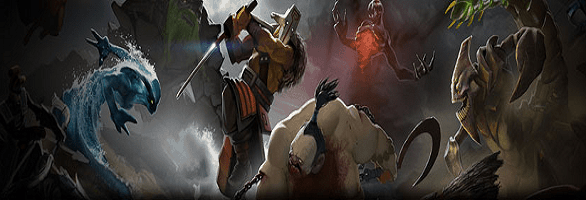According to Gabe Newell, the sequel of Defence of the Ancients (DOTA) will be free-to-play but with a “twist”. Newell has given some information about the game over a yet to be released podcast. The full podcast from Seven Day Cooldown will be released some time today.
Newell has given fans some more to talk about in regards to the new DOTA sequel coming out some time in 2012. He mentioned that the PC and Mac-compatible real-time strategy game will be using a free-to-play funding model but one that has not been seen in any other game before.
“It’s going to be free-to-play — it’ll have some twists, but that’s the easiest way for people to think about it,” Newell stated.
When poked at a little more over what kind of twists players can expect, Newell said:
“The issue that we’re struggling with quite a bit is something I’ve kind of talked about before, which is how do you properly value people’s contributions to a community?
“We’re trying to figure out ways so that people who are more valuable to everybody else [are] recognized and accommodated. We all know people where if they’re playing we want to play, and there are other people where if they’re playing we would [rather] be on the other side of the planet.
“It’s just a question of coming up with mechanisms that recognize and reward people who are doing things that are valuable to other groups of people.”
Newell gave examples of how a player’s behaviour would be rewarded. For example, players who are useful guides or those who volunteer their time to train others. He said that he could not pinpoint to an existing free-to-play model that works like the model that Valve has in mind for DOTA 2. There was no mention of how players were rewarded either.
When asked if this move towards connecting people in games means that Steam is in the process of morphing into a kind of social network, Newell said that Valve is not looking to turn Steam into a social network, at least not in the traditional sense of the word.
Newell described his vision of a gaming social network as allowing Valve to make people as valuable as possible.
“It really is more a legacy of John Carmack’s way of thinking about things than it is social networking,” he said.
“It’s just that now we have the horsepower and the experience in the gaming community to try and figure out how all these experiences get knit together in a way that’s valuable.”

